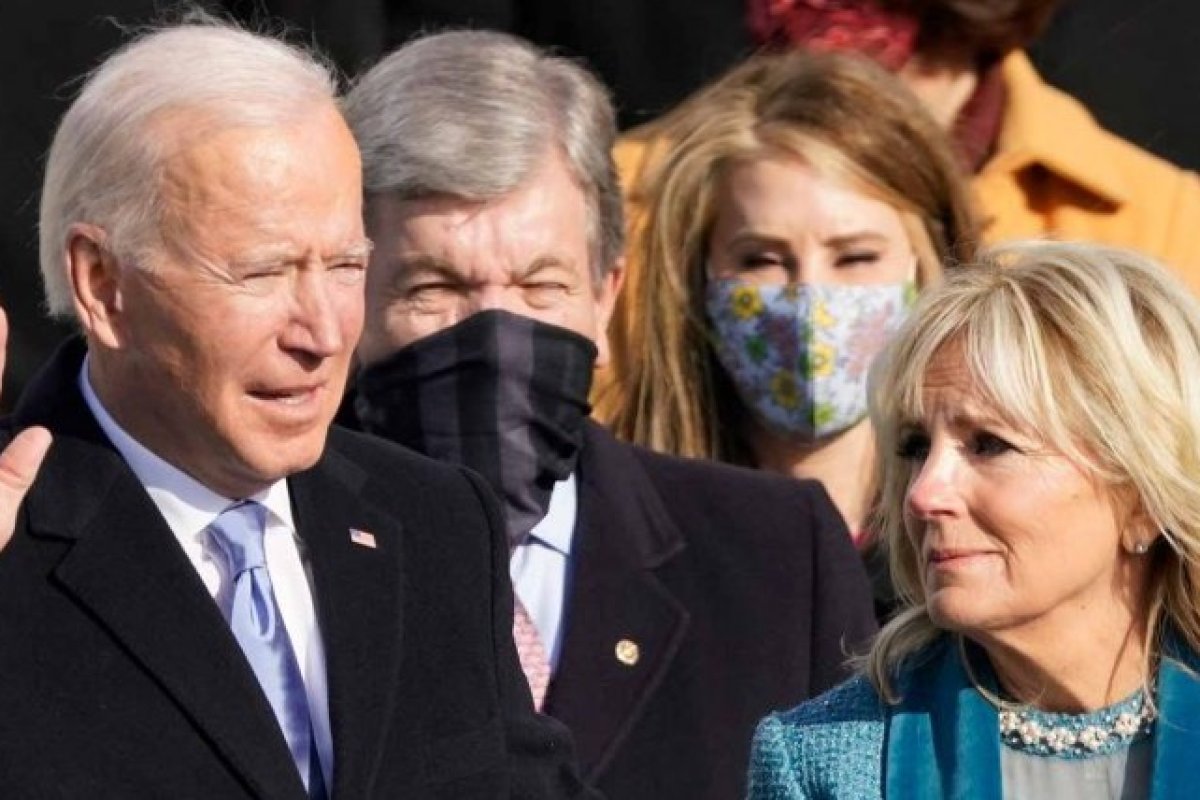
The Blessed Return of Going Through the Motions
President Biden's inauguration and the rituals of normalcy
“A little sincerity is a dangerous thing, and a great deal of it is absolutely fatal.”
--Oscar Wilde, The Critic as Artist
Many Americans have been holding their breath since last November’s election, anticipating those familiar inaugural rituals that might stimulate our democratic memory, awaken our collective imagination, and redirect our nation’s energies from partisan dissimulation, outrage, and violence towards a reawakening of communal purpose. Despite the lingering cultural shock waves of anger and fear after the breach of the Capitol building two weeks before, the oaths of office were administered to President Biden and Vice President Harris on the west front steps of that same building. The absence of cheering crowds dispelled the stadium atmosphere of so much recent political theater, instilling the inauguration with a sobering stillness: a chastened humility that acknowledged the very present reality of suffering across the nation, the toll of our dual epidemics of virus and violence. Viewers were confronted with the necessary ambiguity of this moment, as Biden and Harris made promises to uphold a union on the same ground that played host to dangerous division days earlier. Plenty of words were spoken, most notably the prophetic poetry of 22-year-old Amanda Gorman’s “The Hill we Climb,” but it was the plain language of ritual action that spoke the truth about our nation’s situation. In a moment when our body politic is riven by deceit, distrust, and despair, these vulnerable actors’ exposure on such a vast spatial and temporal stage spoke volumes about the ambiguity of human community, the fragility of human ideals, and the real risks inherent in the promises we make to take up life together.
Much ink has been spilled over these last four years decrying the impact of an undisciplined populist administration on the possibility of democracy. Our founders’ cherished promises of a nation founded on the guarantees of “life, liberty and the pursuit of happiness” have proven stubbornly elusive in the face of a cynical lack of attention to the institutions that undergird these promises. When leaders wield power instead of sharing it, aggrandizing their own influence by disempowering others, our common humanity suffers. Such radical injury to our fundamental human integrity runs deep, and will leave a lasting impression not only on our body politic but on all the vulnerable bodies entrusted to its care.
During his departing remarks at Joint Base Andrews on the morning of January 20, the former president noted that his “was not a regular administration,” an understatement of a complex truth. Human beings need the regulation of the “regular”—the powerful containers of convention and contract, tradition and ritual—in order to thrive. Such institutions and practices can, of course, become moribund, outdated, and oppressive; without constant critique and continual innovation, they can and do inflict harm. But our contemporary preference for following our own instincts, insisting on truth that comports to our own frame and amplifies our own emotions, simply assuages our frustration with the difficulties inherent in community by creating isolated clans that are echo-chambers for partial truths. This fetishism of sincerity—elevating that which seems to us “authentic, free from hypocrisy or duplicity,” without regard for its inherent self-interest and the limitations of our own experience—is a toxic addiction that restricts our reach, impoverishes our imaginations and constrains our ability to apprehend and engage our own complexity, not to mention that of others, with compassion, courage and creativity.
Another 22-year-old prophet and poet, the young Martin Luther King Jr., warned his congregation at Ebenezer Baptist Church of the dangers of acting solely in accordance with our own sensibilities, in a sermon entitled ‘Sincerity is Not Enough’: “All of the moral voices in the world in the world seem to tell us to be sincere and to be conscientious, but few voices tell us to be intelligent….If sincerity is not buttressed by intelligence, it can become the most ruinous force in human nature.” As our traumatized body politic searches for a way forward at this confluence of a new year and a new administration, religious communities and ethical societies would do well to examine our role in shaping our culture’s collective sensorium and cultivating its moral imagination. At their best, religious communities wisely employ the power of ritual to name, bless, and inspire human complexity, to hold space for the necessary ambivalence of human experience, and to enact structures that help us to navigate the tension between what we experience and what we yearn for – not just once every four years, and not simply at the behest of the state, but day in and day out. When our communities of faith fail to cultivate and regularly recreate generative ritual life, when we rely on the power of pulpits alone and reify the narrowest mono-theisms of our sectarian truth claims, we leave worshippers and their neighbors vulnerable to the tyranny of their own earnestness and to manipulation by every intemperate public preacher, pundit, and president.
Ritual practice—the regular performance of the possibility that there is more to human life than the marketplace imagines—helps us meet our own suffering with courage and be moved by the claims of others; it reminds us of our place in the larger scheme of things and maintains essential space for awe, wonder, and not knowing. It is the catalyst for seeing, thinking, and doing, something new when we are confronted by intractable challenges. It empowers spiritual communities to create new ritual forms in virtual spaces, repurposes church buildings to create sanctuaries for persons in need of housing, creates networks of care, physical and financial assistance for essential workers and helps people mourn their losses with intention and integrity. Ritual practice replaces indulgent rhetoric with inspired action, as exemplified this month by the countless temples, mosques, and churches who have offered their facilities as vaccination centers (including Salisbury Cathedral in England, whose two music directors offer organ recitals to calm the fears and lift the spirits of elderly community members receiving their vaccines). As we collectively brace ourselves for another round of impeachment testimonies in our nation’s contested Capitol, it may be too much to hope for organ music to soothe the troubled souls in the halls of Congress. Perhaps we can hope, instead, that faithful communities whose ritual practices include regular acts of confession and self-critique will inspire us all to repent of our parochialism, review the liabilities of our sincerity, and renew our commitment to navigating the complexity of life together.
Photo: Andrew Harnik | AP
Sightings is edited by Daniel Owings, a PhD Candidate in Theology at the Divinity School. Sign up here to receive Sightings via email. You can also follow us on Facebook and Twitter. The views and opinions expressed in this article are those of the author and do not necessarily reflect the position of the Marty Center or its editor.


